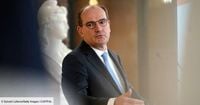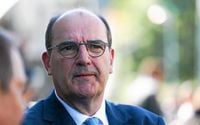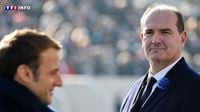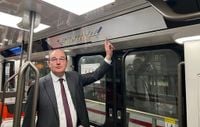In a surprising turn of events, Jean Castex, the current CEO of the RATP (Régie Autonome des Transports Parisiens), announced on April 11, 2025, that he will not be a candidate for the presidency of the SNCF (Société Nationale des Chemins de fer Français). This statement came during an administrative council meeting, where he explicitly denied rumors circulating in the media about his potential candidacy to succeed Jean-Pierre Farandou, who is set to leave his position this summer due to the age limit of 68 years.
Castex, who was reappointed to lead the RATP for another five years in October 2024, stated, "I have never written to the Élysée or any other authority, and I am not a candidate to succeed Jean-Pierre Farandou." His comments put an end to speculation that had intensified in recent days, fueled by his known passion for the railway sector.
As the SNCF prepares for a leadership transition, attention has turned to potential successors. Among the names frequently mentioned are Xavier Piechaczyk, the current president of RTE (Réseau de Transport d'Électricité), and Marie-Ange Debon, president of Keolis, a subsidiary of SNCF. Piechaczyk, once viewed as a frontrunner, has faced challenges to his candidacy, particularly from the CGT (Confédération Générale du Travail), the largest trade union within the SNCF, which has expressed strong opposition to his potential appointment.
Despite Castex's firm denial of interest in the SNCF presidency, some observers believe that he may still be considered for the role by the executive branch. This perspective is bolstered by the support he has received from various unions, including the CGT, whose leader, Sophie Binet, has publicly advocated for Castex's nomination, citing the positive relationships he fostered during his tenure as Prime Minister.
Castex's leadership style has garnered respect from multiple unions at RATP, including FO (Force Ouvrière), which had previously called for his reappointment. His ability to engage in dialogue with employees and his understanding of financial results have been highlighted as essential qualities for the next head of the SNCF.
In a recent interview with La Tribune, Transport Minister Philippe Tabarot articulated the qualities he envisions in Farandou's successor: "someone who knows how to communicate with their employees, who has a culture of financial results, and who understands the railway and the territory." This statement hints at the type of leadership the government is seeking as it navigates the complexities of the transportation sector.
While the SNCF prepares for this significant transition, the financial performance of the RATP under Castex's leadership has shown mixed results. In 2024, the company's turnover increased by 10%, driven largely by the upcoming Paris 2024 Olympic Games and extensions of metro lines. However, the transport operations themselves have remained in deficit, raising questions about the sustainability of the current management approach.
As the summer approaches and Farandou's departure looms, the question of who will lead the SNCF remains open. With Castex's recent announcement, the spotlight shifts back to Piechaczyk and Debon, both of whom have their own strengths and challenges as potential candidates. The political landscape surrounding this appointment is further complicated by the recent dissolution of the National Assembly, which has reshuffled the deck for many potential candidates.
In the context of these developments, the uncertainty surrounding the SNCF leadership transition reflects broader tensions in the French transportation sector, where unions play a significant role in shaping executive appointments. The CGT's opposition to Piechaczyk underscores the importance of union relations in any future leadership decision.
As the SNCF prepares for a new chapter, the interplay between political influence, union support, and the need for effective management will undoubtedly shape the future of France's railways. The next few months will be critical in determining who ultimately steps into the role left vacant by Farandou, and how that individual will steer the SNCF through the challenges ahead.








